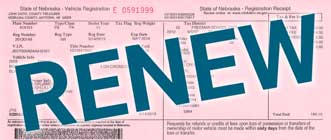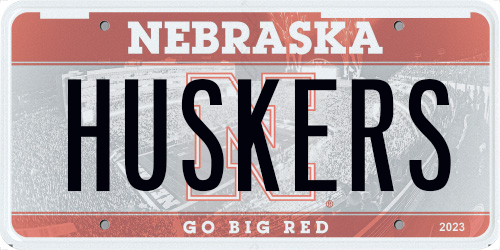Record Keeping
You must maintain records to support information reported on the quarterly tax return for a period of four years from the due date of the return or the date filed, whichever is later. Our audit staff requires that all IFTA carriers sign and return to our office a ![]() Notice of Record-Keeping Requirements for IFTA/IRP please retain a copy of this form for your records.
Notice of Record-Keeping Requirements for IFTA/IRP please retain a copy of this form for your records.
Mileage Records
An acceptable mileage accounting system is important in compiling the data necessary to complete the IFTA tax return. Your records must include mileage data for each trip on each vehicle and be totaled by vehicle and fleet on quarterly summaries. Supporting information, being kept manually must include the following:
- date of trip (starting and ending);
- trip origin and destination;
- routes of travel;
- beginning and ending odometer reading of the trip;
- total trip miles;
- mileage by jurisdiction;
- unit number or VIN;
- vehicle fleet number;
- registrant's name
A trip sheet or similar mileage record must be completed for each day or trip (depending on your activity) for in-state and out-of-state activity, including loaded, empty, dead-head and/or bobtail miles. Miles operated on toll roads must be included. Miles per state can be calculated using odometer and /or hubometer reading, state maps, computerized mileage software, or GPS, as long as the method used is consistent for the entire fleet, and documentation supporting calculations is available for audit. Make sure the sum of the miles per state equals total odometer miles for each trip or day.
Other forms that may be used for recordkeeping
 Trip Sheet COLORADO ONLY
Trip Sheet COLORADO ONLY Trip Sheet IOWA ONLY
Trip Sheet IOWA ONLY Trip Sheet KANSAS ONLY
Trip Sheet KANSAS ONLY Trip Sheet SOUTH DAKOTA ONLY
Trip Sheet SOUTH DAKOTA ONLY Trip Sheet MULTI-STATE
Trip Sheet MULTI-STATE
When using distance records produced by a vehicle tracking system that utilizes latitudes and longitudes (GPS), a record must be created and maintained at a minimum every 10 minutes when the vehicle’s engine is on and contain the following data elements:
1. the date and time of each system reading;
2. the latitude and longitude to include a minimum of 4 decimal places (0.0001) of each system reading;
3. The odometer reading from the engine control module (ECM) of each system reading. If no ECM odometer is available a beginning and ending dashboard odometer or hubodometer for the trip will be acceptable;
4. the vehicle identification number or vehicle unit number
This data must be accessible in an electronic spreadsheet format such as XLS, XLSX, OR CSV. Formats from a vehicle tracking system that provides a static image such as PDF, JPEG, PNG, or Word are not acceptable.
All of the raw data from the GPS system needs to be available for 4 years for IFTA. If the system you are using des not retain your data for that period of time you need to make sure that you are downloading your information quarterly and retaining it as your backup.
Monthly, quarterly, and yearly mileage summaries are not acceptable at face value, and must be supported by driver-prepared original source documents or raw data GPS information, in order to be of any use during an audit.
Fuel Records
You must maintain complete fuel records, supported by fuel receipts, of all purchases as reported on the return. Separate totals must be compiled for each fuel type and for each vehicle on a quarterly fleet summaries. Over the road (O.T.R.) fuel purchases and bulk storage fuel purchases are to be accounted for separately. Photocopies or scanned copies of the receipts are acceptable for audit.
Over-the-road (O.T.R.)
A receipt, invoice, a credit card receipt, or an automated vendor-generated invoice or transaction listing must support tax paid purchases. In order for you to be allowed credit for O.T.R. purchases of fuel, the receipt must contain:
- date of purchase
- name and address of seller
- number of gallons purchased
- type of fuel purchased
- price per gallon or liter
- unit or plate number into which the fuel was placed
- licensee's name
O.T.R. fuel receipts must identify the vehicle by the unit or plate number. Only vehicles identified with your operation may be reported for mileage and fuel consumption. Note: prepaid fuel receipts are not acceptable. Make sure that if you have to prepay that you go back into the station and get a receipt with the required information.
Bulk Storage Fuel
Bulk storage fuel is normally delivered into fuel storage facilities maintained by the licensee. The licensee must retain copies of all delivery tickets and/or receipts.
With respect to withdrawals from bulk storage fuel, tax paid credit can only be given if the following detailed records are maintained;
- date of withdrawal
- number of gallons withdrawn
- type of fuel
- unit or plate number into which the fuel was placed
- purchase and inventory records to substantiate that tax was paid on all bulk withdrawal
- meter readings, inventory measurements and quarterly reconciliation
IFTA decals
You should be able to provide a complete inventory (![]() IFTA Decal Inventory Sheet) of all IFTA decals. If you purchase more decals than are used, these should be kept for audit purposes for a four-year period.
IFTA Decal Inventory Sheet) of all IFTA decals. If you purchase more decals than are used, these should be kept for audit purposes for a four-year period.
Audit
Every IFTA licensee is subject to audit. In the event you are chosen for an audit, you will be contacted by Motor Carrier Services audit staff prior to the beginning of an audit so that all the required records are available. A written confirmation will be sent to you. If you fail to provide records for an audit, the statute of limitations is extended until records are provided.
If your records are unacceptable for audit purposes the audit staff may determine the following:
- Your audited/reported MPG will be reduced by 20%.
- All claims for tax-paid fuel without supporting documentation will be disallowed; and
- The burden of proof lies with the licensee
Once your audit is completed, the findings are reported in writing to you and affected jurisdictions. Nebraska will collect any tax, penalty, and interest owed to all member jurisdictions.
Appeal Procedures
You may appeal an action or audit finding issued by any member base jurisdiction by making a written request for a hearing within thirty (30) days after you receive final notice of audit findings. If the hearing is not requested in writing within thirty (30) days, the original finding or action is final. If you appeal an assessment for one or more jurisdictions, Nebraska will participate in the appeal process on behalf of the other jurisdictions. A hearing will be held as soon as possible, but could be continued for reasonable cause shown by either party. Motor Carrier Services will give at least twenty (20) days written notice of the time and place of hearing.
In an appeal, you may appear in person and/or be represented by counsel at the hearing and entitled to produce witnesses, documents or other pertinent material to support your appeal. Motor Carrier Services will notify you of the findings of fact and ruling on the appeal.















 IFTA Record Keeping/Audit
IFTA Record Keeping/Audit Powered by
Powered by